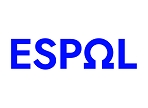FORMATIONS |
Fiche détaillée d'un cours
 | International Political Economy L2 RI | ||
2023-2024 | FrESPOL European School of Political and Social Sciences
(
ESPOL
)
| ||
Code Cours : | 2324-ESPOL-POLS-EN-2018 | ||
| Niveau | Année de formation | Période | Langue d'enseignement |
|---|---|---|---|
| S4 | FrAnglais |
| Professeur(s) responsable(s) | Scott HAMILTON, Damian RAESS |
|---|---|
| Intervenant(s) | Pas d'autre intervenant |
- Ce cours apparaît dans les formations suivantes :
- ESPOL - Licence 2 de Relations Internationales - S4 - 6 ECTS
ESPOL - Programme in European Politics - S2 - 6 ECTS
Pré requis
None
Objectifs du cours
By the end of the course students should be able to:
- Conceptualize and analyze the workings of the global economy in a holistic manner, by focusing on the various issue areas of the global economy
- Introduce the global economy as a political competition that produces winners and losers
- Emphasize fundamental (economic) concepts as well as the interplay between material interests, institutions, and ideas to explain how the global economy works
- Outline and explain the evolution of international trade and monetary cooperation over the past two centuries
- Critically assess how economic policy is made in the context of globalization
- Review and evaluate studies in various areas of research in IPE
Contenu du cours
With the expansion of globalization during the last decades, economic conflict and cooperation among states play an increasingly important role for international political affairs in the modern state system. This course examines the political origins and political consequences of the intense economic ties that characterize contemporary interstate relations. The course integrates insights from previous courses by showing how explanations from international economics are insufficient to understand the major developments in the history of the international economic system. The course also builds on international relations theory to identify the central political factors that influence foreign economic policy. In particular, we examine how the distribution of power in the international system, the presence of international institutions, and the political interests of governments, political parties and interest groups influence interstate economic relations.
The course has four parts. The first part reviews the major developments in the international economic system, discusses historical approaches to International Political Economy (IPE) and outlines the major theoretical building blocks of modern IPE. The rest of the course then applies this analytical framework to a variety of issue areas. The second part analyzes the politics of trade, including international trade cooperation, domestic trade politics, and trade and development. The third part studies the political roots of international monetary relations, including international monetary cooperation, exchange rate politics, and financial crises. The final part examines the effects of (hyper-)globalization and the economic rise of China for democratic politics in advanced economies, labor standards in developing countries, and the Liberal International Order.
Modalités d'enseignement
Organisation du cours
Lectures: First session Monday 10:00-12:00; otherwise Thursday 8:00-10:00; room LW S122
Seminars (TD): groups 1-4 meet on Monday; group 5 on Tuesday.
Course Requirements
1) Continuous assessment based on the presentation (25% of final grade), with class participation taken into account to round up or down.
2) Mid-term examination (25%). One open question.
3) Final exam (50%). Mix of open question and MCQ.
Méthodes pédagogiques
Évaluation
Bibliographie
For the course, one required research article per week, at times augmented by 1 or 2 chapters from the following textbook:||
Thomas Oatley, 2019, International Political Economy (6th edition), Routledge.
* Informations non contractuelles et pouvant être soumises à modification


















































































